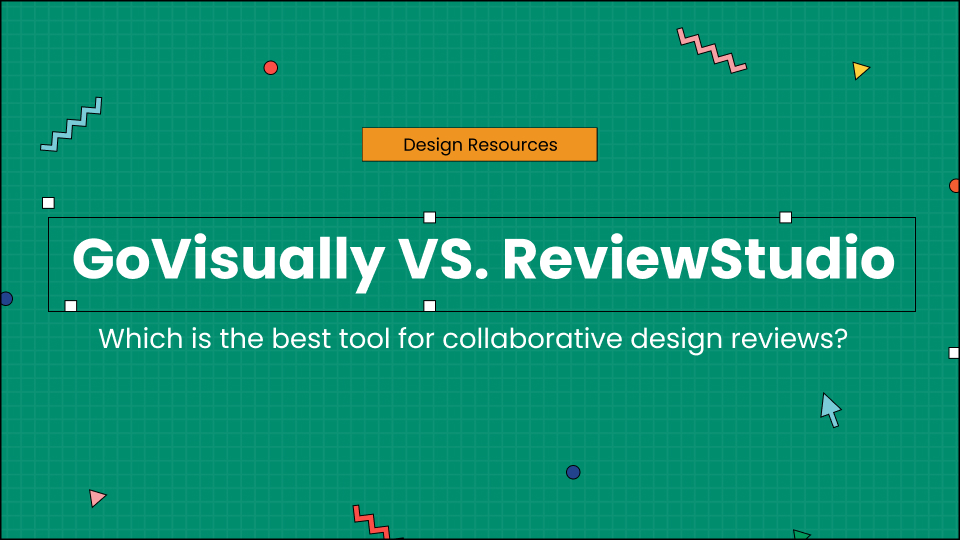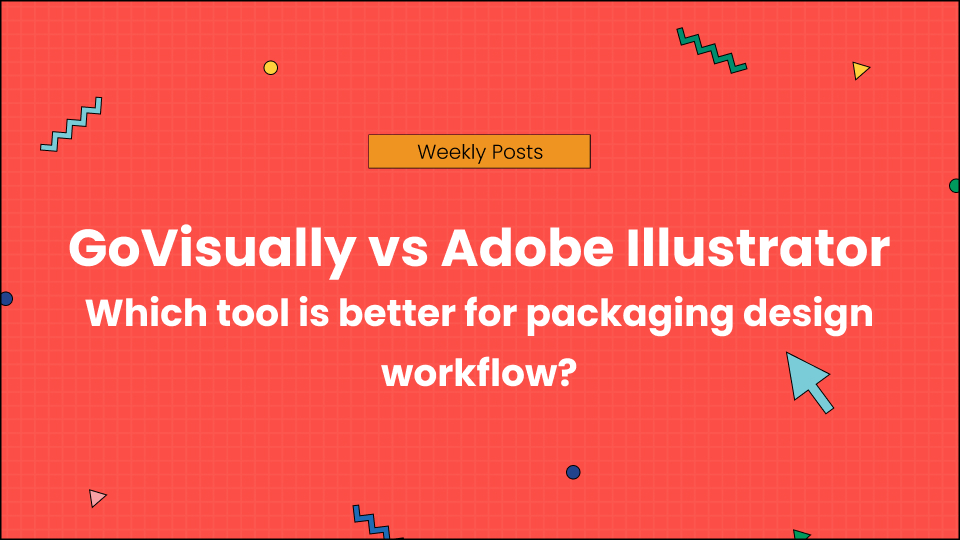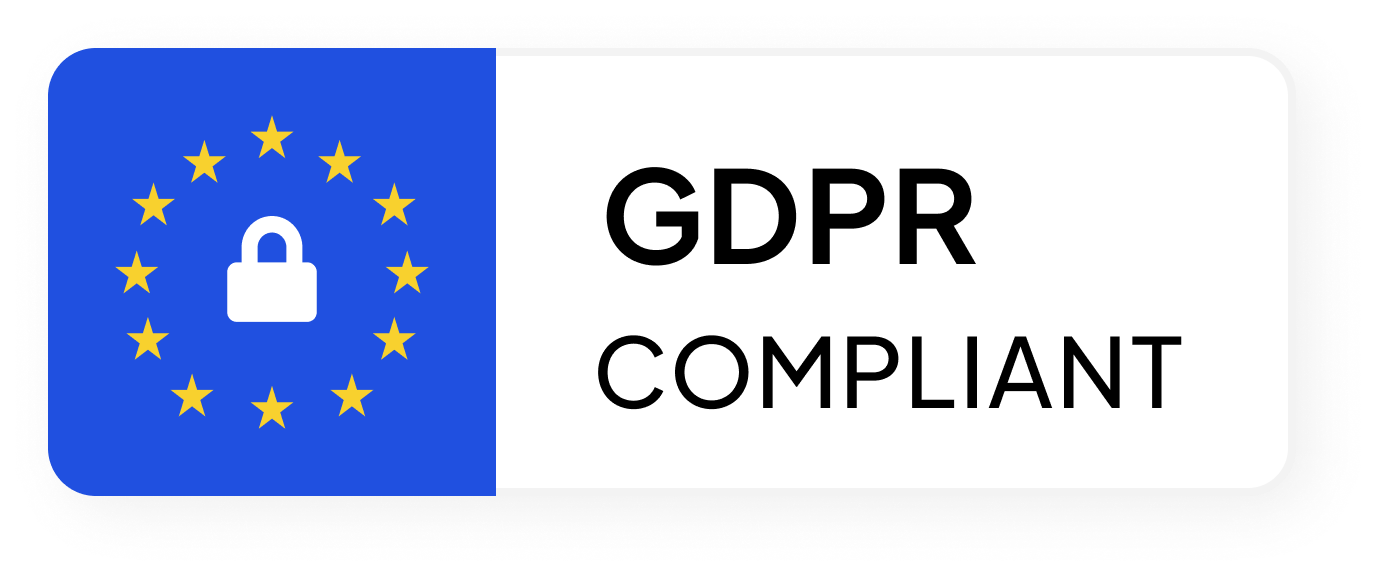If industry giants like Mattel and Costco can stumble over basic packaging errors, imagine what’s at stake for the rest of us?
Mattel, a toy company with decades of packaging experience and presumably multiple review cycles, pulls thousands of dolls right before the holiday season. The cause? A packaging copy error that could have been caught in minutes.
Another example, Costco recalls 80,000 pounds of butter. Reason? Two missing words on its label: “contains milk.”
These aren’t small players making rookie mistakes. These are industry leaders with established processes, dedicated teams, and substantial resources. Yet here they are, facing recalls worth millions of dollars over errors that take minutes to spot with the right tools like GoVisually’s AI.
Let that sink in.
If companies with multi-million dollar budgets, thousands of dedicated staff, and access to the best industry experts can overlook these details, how confident are you in your last label review cycle?
Let’s break down this issue to understand why these mistakes occur and how they can be prevented (WITH PROVEN EXAMPLES).
Table of Contents
Breaking down the numbers: Product recall stats & data in 2024
Let’s look at what recent data tells us about recall trends across industries.
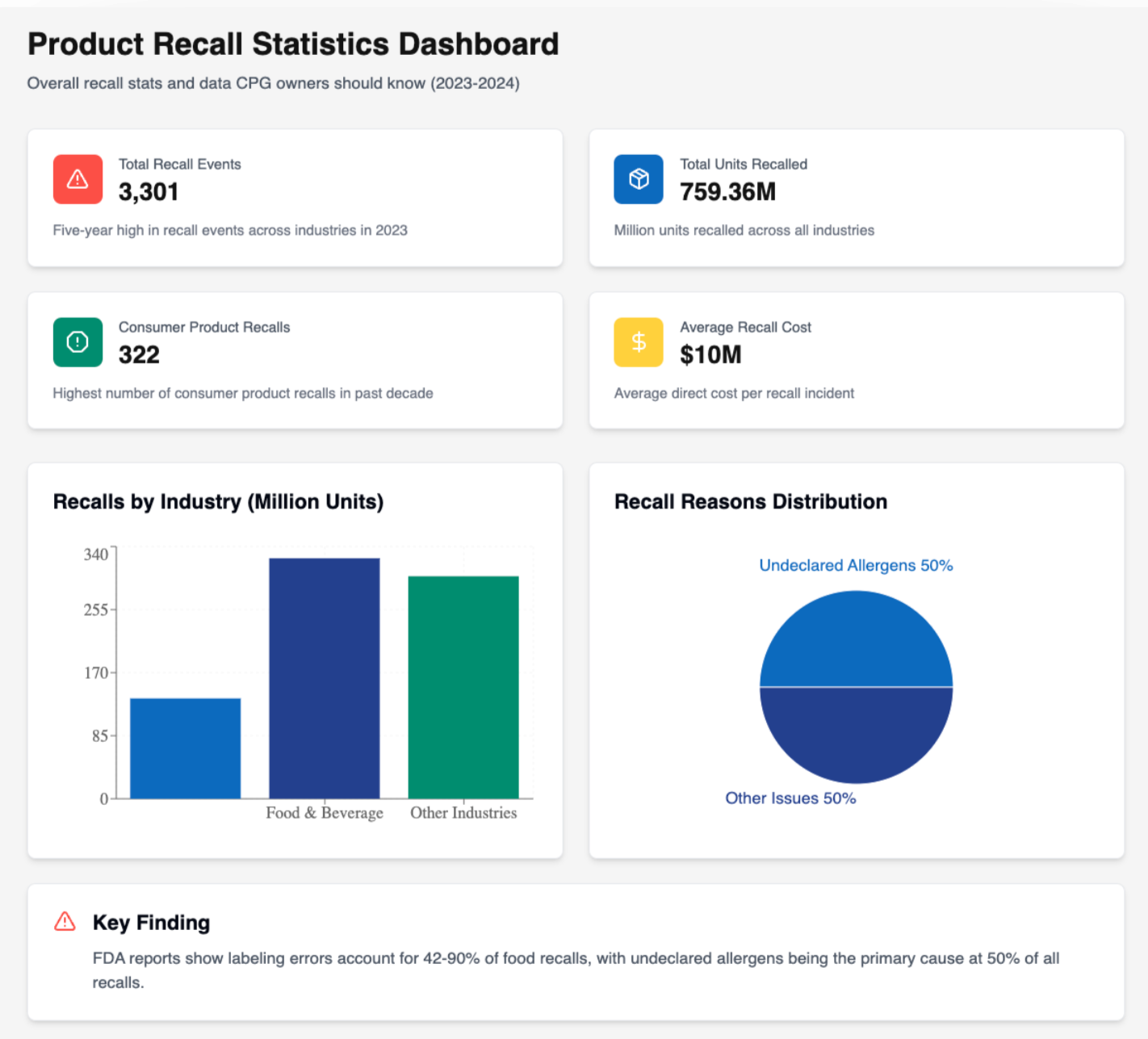
Overall recall stats and data CPG owners should know.
- 3,301 recall events across industries in 2023, marking a five-year high
- 759.36 million units recalled across all industries
- Consumer products hit seven-year high with 135.23 million units impacted
- 322 consumer product recalls – highest in past decade
- FDA reports show labeling errors account for 42-90% of food recalls
“Undeclared Allergens” causes 50% of recalls.
Costco is not the only company facing recalls due to “undeclared allergen”, in fact if you look at the recent Sedgwick’s Report—State of the Nation 2024 Recall Index, you’ll see almost 50% of food and drink product recalls were called out due to “undeclared allergen”.
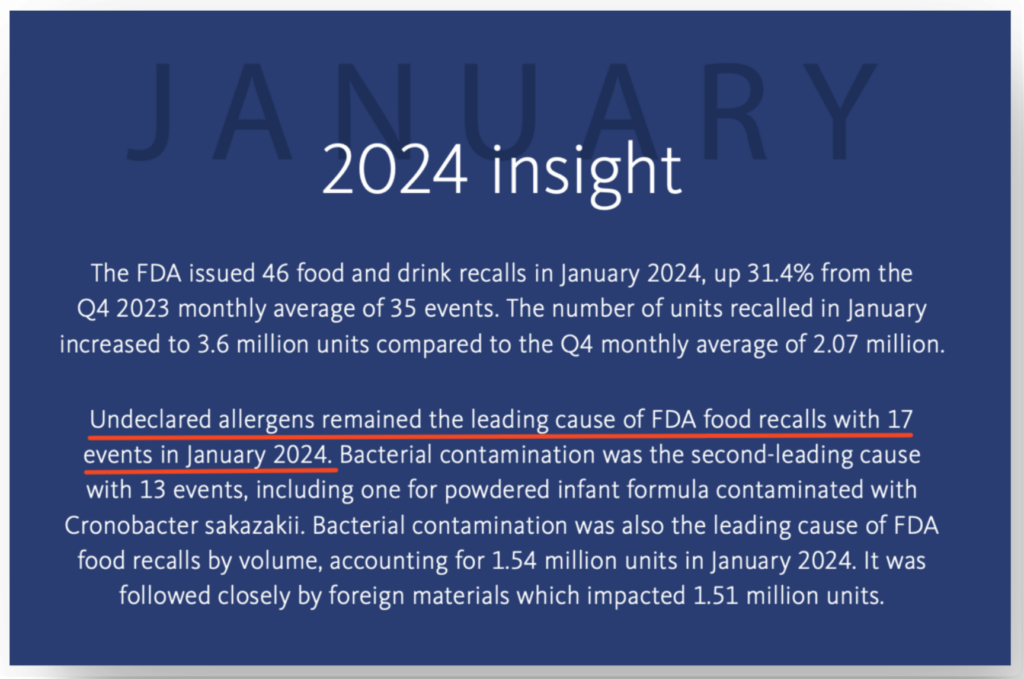
Your brand is one recall away from going bankrupt; says Reports
One recall can drain millions from your bottom line. According to the same report, the average direct cost of a recall hits $10 million – and that’s just the beginning. For larger brands, these costs can escalate significantly higher.Direct costs typically include:
- Notification to regulatory bodies, supply chain, and consumers
- Product retrieval (reverse logistics)
- Storage and destruction of recalled products
- Labor costs for recall activities and root cause investigation
And these are just the direct costs. Other long-term, indirect costs for damaged brand reputation, lost sales, post-incident governmental oversight, etc. can suck up to months of efforts and revenue in just one recall. These mounting costs can be easily lead to bankruptcy for brands especially, small cap companies,
How do product recalls truly impact brands? (Expert inputs)
Product recalls don’t just hit your bottom line – they trigger a chain reaction across your business. First it starts with immediate impacts which are financial loss, PR nightmare, consumer backlash etc.
These immediate impacts lead to a chain reaction of losses in the organization, leading to long-term damages like dropped market share, lost retail partnerships, compromised customer loyalty, etc.
Let’s take the example of Costco to understand how this recall would’ve impacted Costco:
Immediate financial impact of recall
Let’s look at the numbers
- Direct recall costs: Estimated $10M (industry average)
- 80,000 pounds of butter wasted
- Emergency logistics for:
- Removing products from multiple stores
- Managing returns across different states
- Paying extra for last-minute shipping during busy season
Loss of holiday sales
With over 134 million cardholders, using Costco butter for holiday baking has become a tradition for many, and this recall led to
- Loss of sales during prime butter consumption period
- Empty shelf space during peak demand
- Forced customers to buy competitor brands for holiday recipes
- Higher replacement costs during seasonal demand
Operational disruption
Here’s what happens to operations when a recall hits during holiday season
- Holiday inventory planning is disrupted
- Warehouse space is tied up with recalled butter
- Staff members are pulled from holiday duties to handle recall
- Extra work during already-busy season
- It also mount up additional operational costs for:
- Reprinting of compliant labels
- Repackaging of new butter stock
- Reshipping to multiple store locations
- Redistributing during peak delivery season
- Retraining staff on new compliance protocols
Brand trust
According to the Food Safety Magazine,
- 55% of consumers would switch brands temporarily following a recall
- 15% would never purchase the recalled product again
- 21% would avoid any brand made by the manufacturer of the recalled product
It took 40+ years for Costco to build brand trust among consumers, and only one recall to crash it all! All those decades of experience, yet they made a small labeling error that put a lot of things at stake— four decades of carefully built consumer trust, consumer loyalty, and their competitive edge. How? Check it out in the next section.
Why do these mistakes happen?
Yes, why do these mistakes happen? Despite strict regulatory bodies, access to best industry experts for label review, extensive label review processes, why do the recalls reach a new high every year?
According to Risk & Insurance, the number of product recalls in 2024 will reach a six-year high. Over 2,450 recalls will affect 580M+ units in the first nine months of 2024.
But again, why does that happen?
Is it a lack of expert teams? Or a proper review process?
No, it’s the lack of integration of technology.
Many industry reports clearly show that each label carries at least 1-3% human errors during manual reviews. You spend 2-6 weeks on each label reviewing and refining it and still it doesn’t assure you with 100% compliant labels.
That’s why we recommend using GoVisually’s AI-powered label compliance tool. Let’s see how it can provide you 99.99% compliant labels.
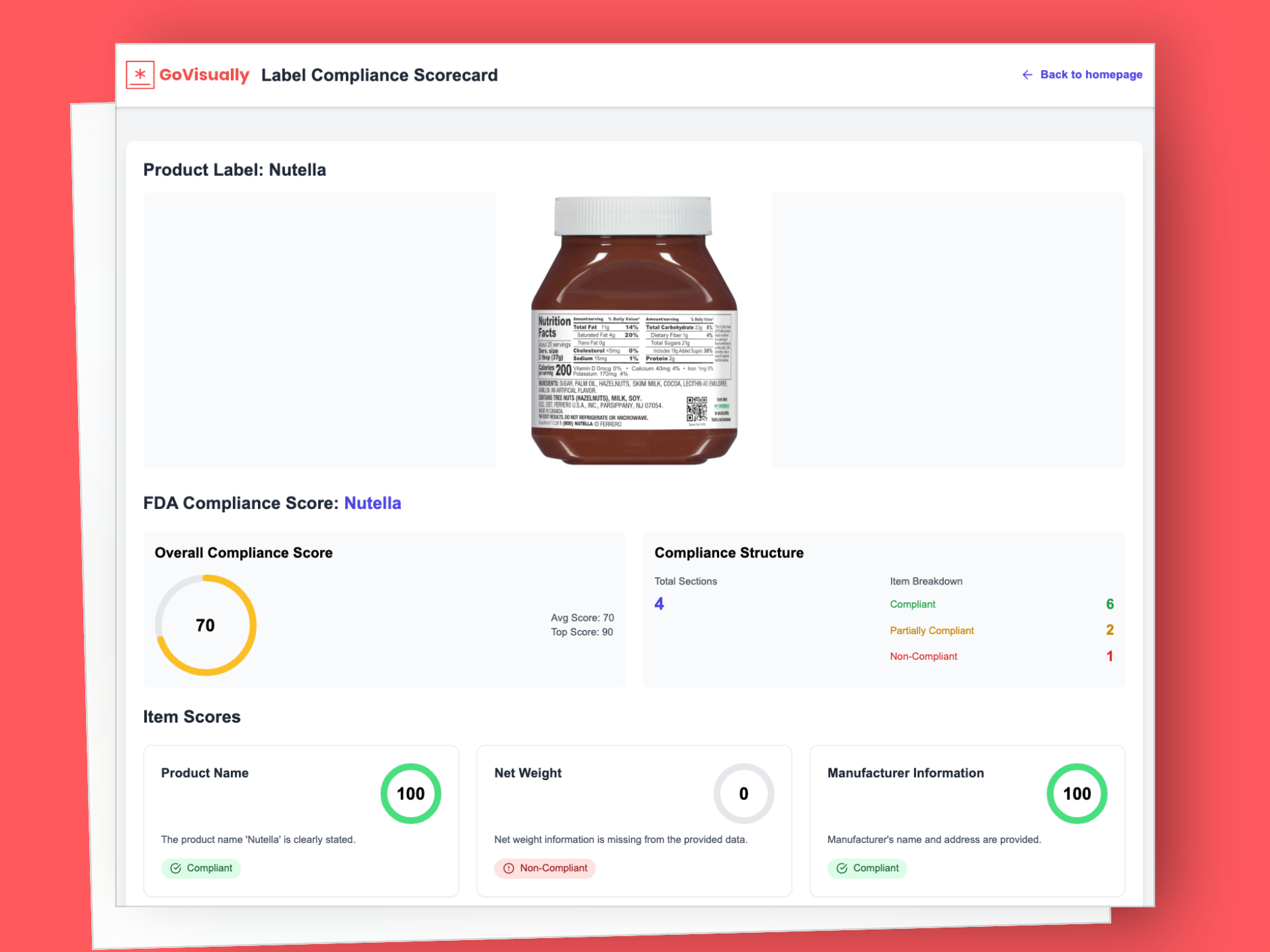
- Save weeks of review time: Brings down your 2-6 week review cycle to a few minutes process, with one-click analysis.
- Never miss a regulation update: Protects your brand with 99.99% compliance accuracy across FDA, UK, and CFIA regulations through automatic, real-time checks.
- Eliminate costly labeling errors: Prevents recalls with 99.9% accurate verification of claims, keywords, and declarations – catching issues before they become expensive mistakes.
- Adapt to any market requirement: Launch products 50% faster and reduce compliance issues by 75% with custom playbooks tailored to your specific markets and product lines.
- Catch every compliance detail: Sleep easier knowing every aspect of your label – from spelling to allergens, nutrition facts to barcodes – is automatically verified in one comprehensive review.
- Stop issues before they start: Identify potential problems 200% faster than manual reviews and reduce revision cycles by 60% with AI-powered suggestions and early warning systems.
- Keep your team in sync: Cut communication delays by 70% and eliminate version confusion with a centralized platform that keeps everyone on the same page.
For more details on GoVisually’s AI, read our label compliance guide and understand how it helps CPG brands create recall-proof labels.
How Mattel & Costco could’ve saved millions of dollars in just 5 minutes?
Okay, hypothetically, what if Mattel and Costco had GoVisually’s AI integrated in their label review process? Let’s see how it could’ve altered the consequences for both of them.
How Mattel could’ve saved the holiday criss?
Let’s start by understanding: what went wrong?
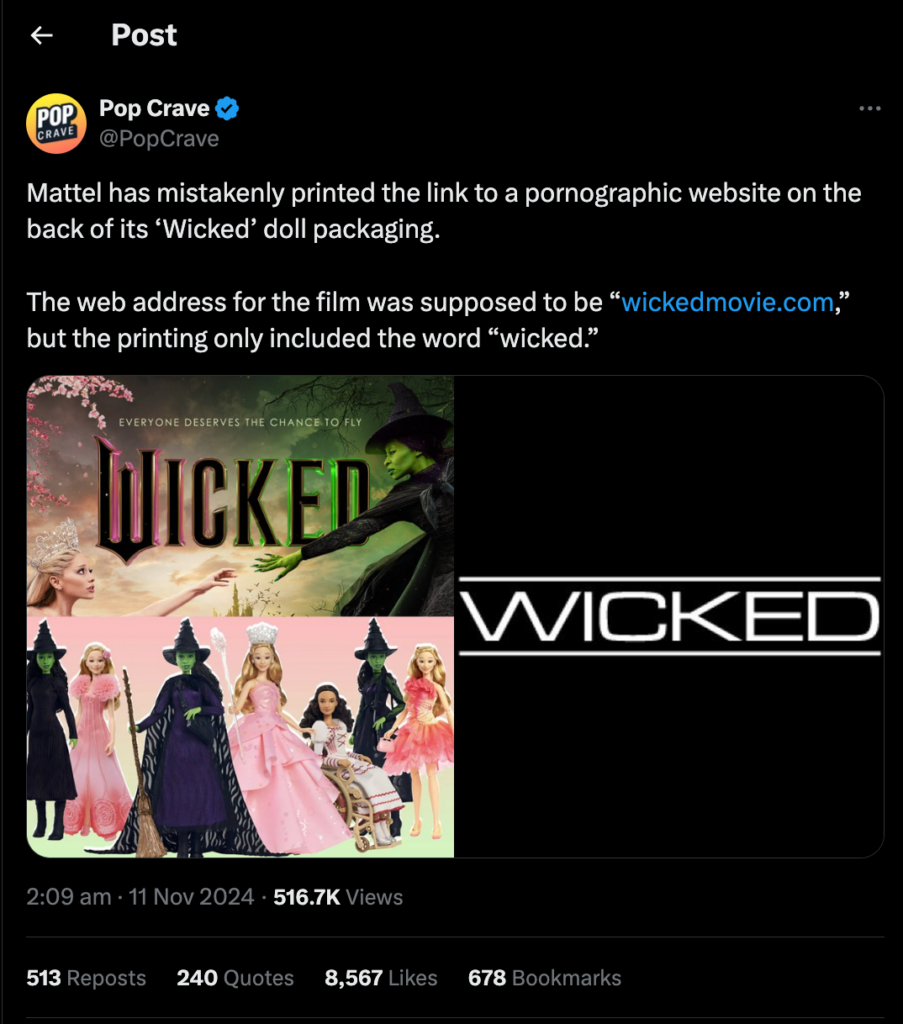
Source: X’s tweet
A single misprint URL on thousands of doll packages forced Mattel to pull their entire ‘Wicked’ collection right before the holiday season. While URL verification is a mandatory part of standard Operating Procedures (SOPs) in packaging compliance, this oversight in manual review led to linking a children’s toy to an adult website instead of the official movie page. Mistakes like these highlight how traditional review processes can fail during high-pressure launch periods.
This recall not only dropped the sales, but also created a lot of backlash for the movie “Wicked”. Mattel produced these dolls in collaboration with Universal Pictures for promoting their latest movie called “Wicked”
Now, let’s see how this backlash could have been prevented, if Mattel had used GoVisually’s AI.
GoVisually’s AI runs labels under multiple factors to detect errors in spellings, mismatch phrases, etc.
Website Address Checker
- Instantly flags incorrect URLs against approved domains
- Verifies exact match with “www.wickedmovie.com“
- Prevents unapproved web addresses from passing review
- Shows clear warnings for non-matching URLs
Version Control
- Ensures consistent URL across all package versions
- Maintains single source of truth for approved links
- Prevents outdated versions from reaching production
Similarly, let’s see how Costco could have prevented the 80,000-pound butter recall!
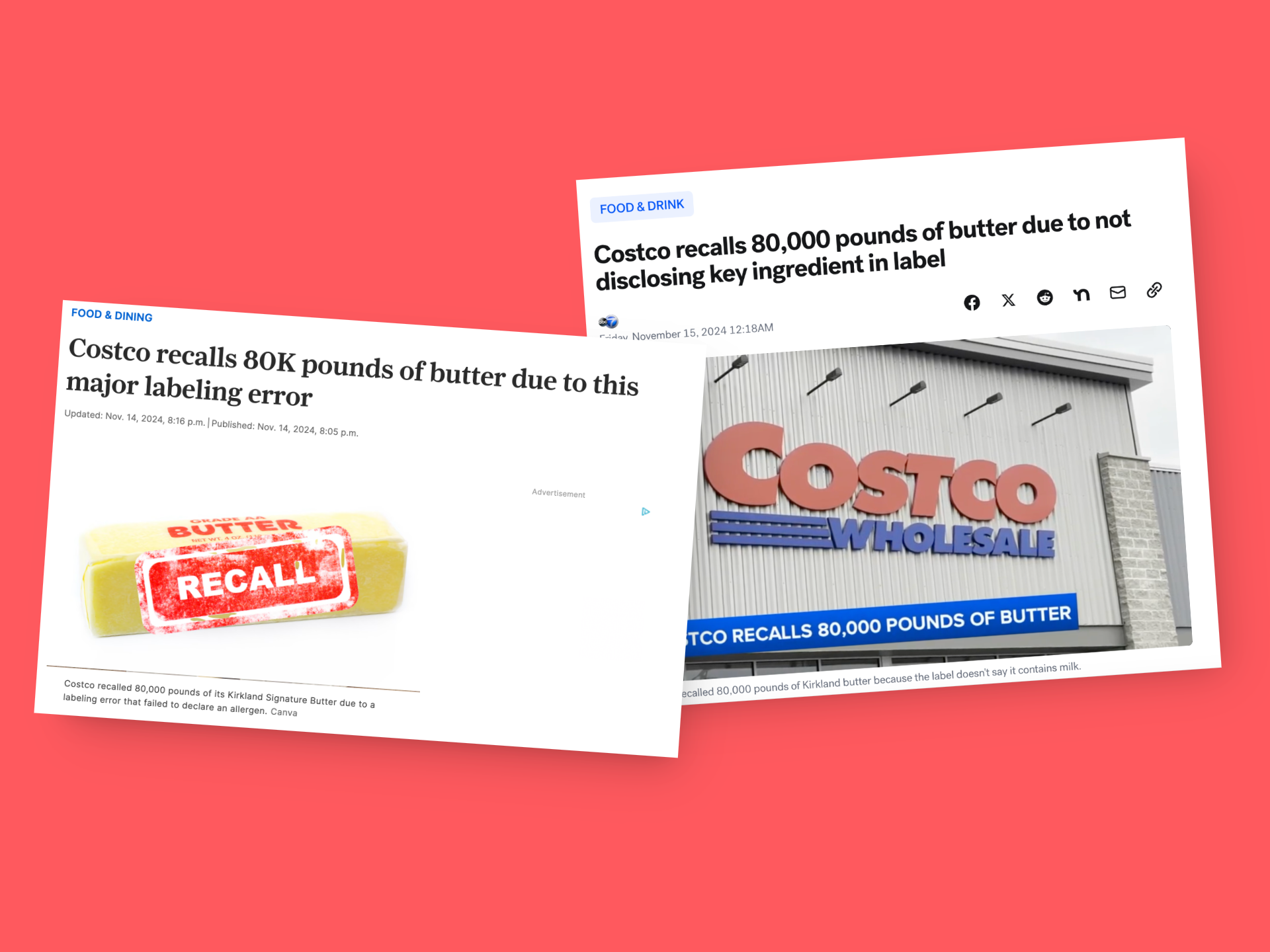
Starting with, what went wrong?: Costco recently recalled 79,200 salted and unsalted Kirkland Signature butter due to an undeclared “contains milk” tag in the label. With dairy-free butter alternatives becoming increasingly common in the market, this missing declaration could mislead consumers with dairy allergies into believing it was safe for consumption —potentially leading to serious reactions.
The stakes are even higher, considering 2-6% of the global population have milk allergies (Food and Agriculture Organization data). That’s why even for obvious dairy products like butter, milk labeling is non-negotiable under FALCPA’s (Food Allergen Labeling and Consumer Protection Act) “Big 8” allergens list.
Let’s see how it Costco could’ve saved millions of dollars and of course, 80,000 pounds of butter, if they had used GoVisually’s AI:GoVisually offers a comprehensive label review suite with features like allergen detection, compliance verification, ingredient analysis, etc. Read on to learn how these features work to reduce label review cycle from 6 weeks to 5 minutes!
Allergen declaration verification
- Automatically checks for required allergen statements
- Cross-references ingredients with required declarations
- Ensures FDA compliance for common allergens
- Flags missing mandatory declarations instantly
Smart ingredient analysis
- Identifies “cream” as milk-derived ingredient
- Triggers automatic allergen declaration requirements
- Ensures consistency between ingredients and allergen statements
FDA Compliance Verification
- Instant checks against FDA allergen databases
- Coverage of major and minor allergens
- Real-time regulatory requirement updates
This could have ensured compliance with FDA’s mandatory allergen labeling requirements before production.
Label Claim Validation
- Automatic cross-checking of ingredients vs. declarations
- Detection of missing allergen statements
Overall, if Costco had used GoVisaully’s AI, the tool would have identified the disconnect between ingredients and allergen declarations, and prevented the issue across all 80,000 pounds of affected product.
Want to create 99.99% recall-proof labels? Experts recommend using GoVisually’s AI-powered label review tool
Automate your label review cycle, and get results like
- Reduced review time from 1-6 weeks per label to minutes
- Minimized compliance risks through automated checks
- Increased efficiency by up to 90% compared to manual processes
- Reduced monthly label review cost
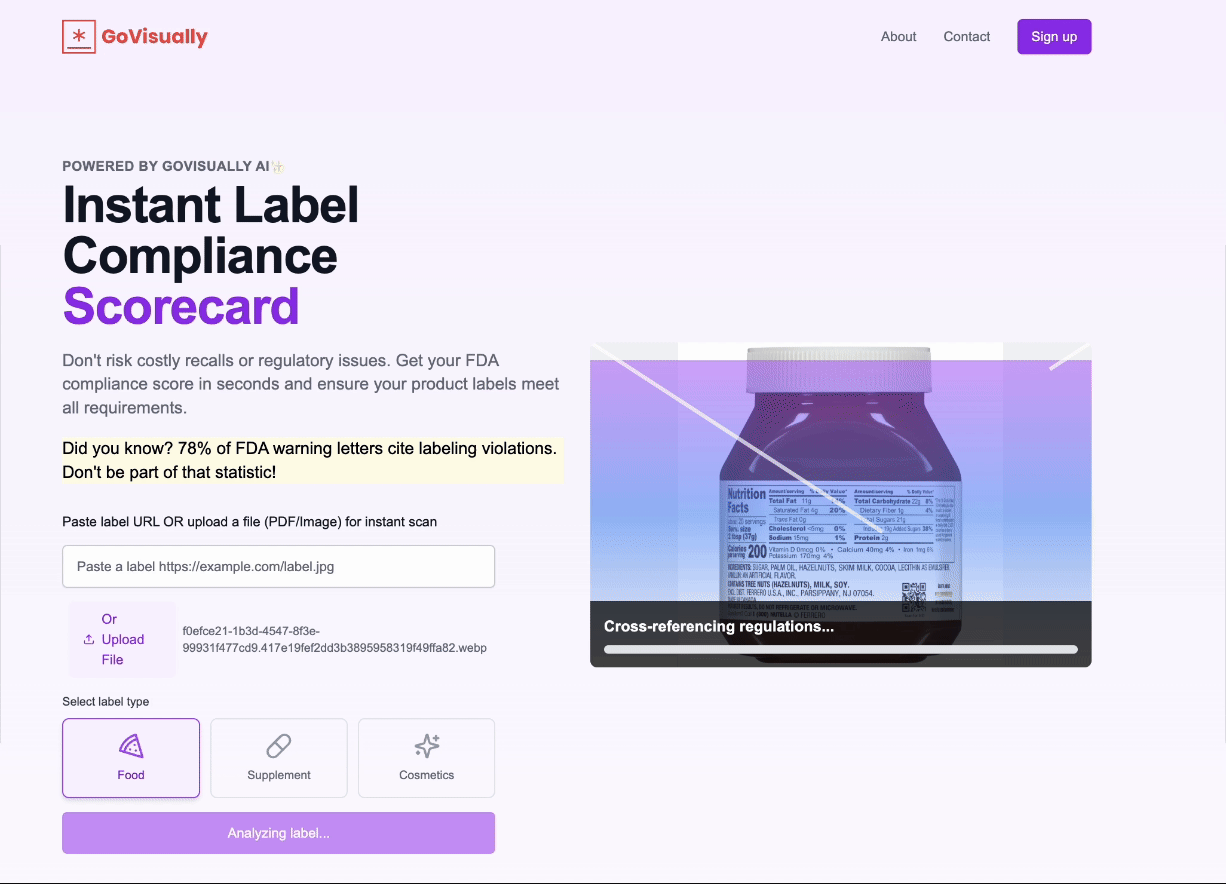
Sign up for GoVisually AI-powered review software. Using GoVisually and some expert guidance, you’ll be able to create 100% recall-proof labels that protect your brand and bottom line.
Start with our free Label Scorecard tool (with limited features and guidance)—a unique platform to see how well your labels comply with existing FDA and other regulatory standards.

